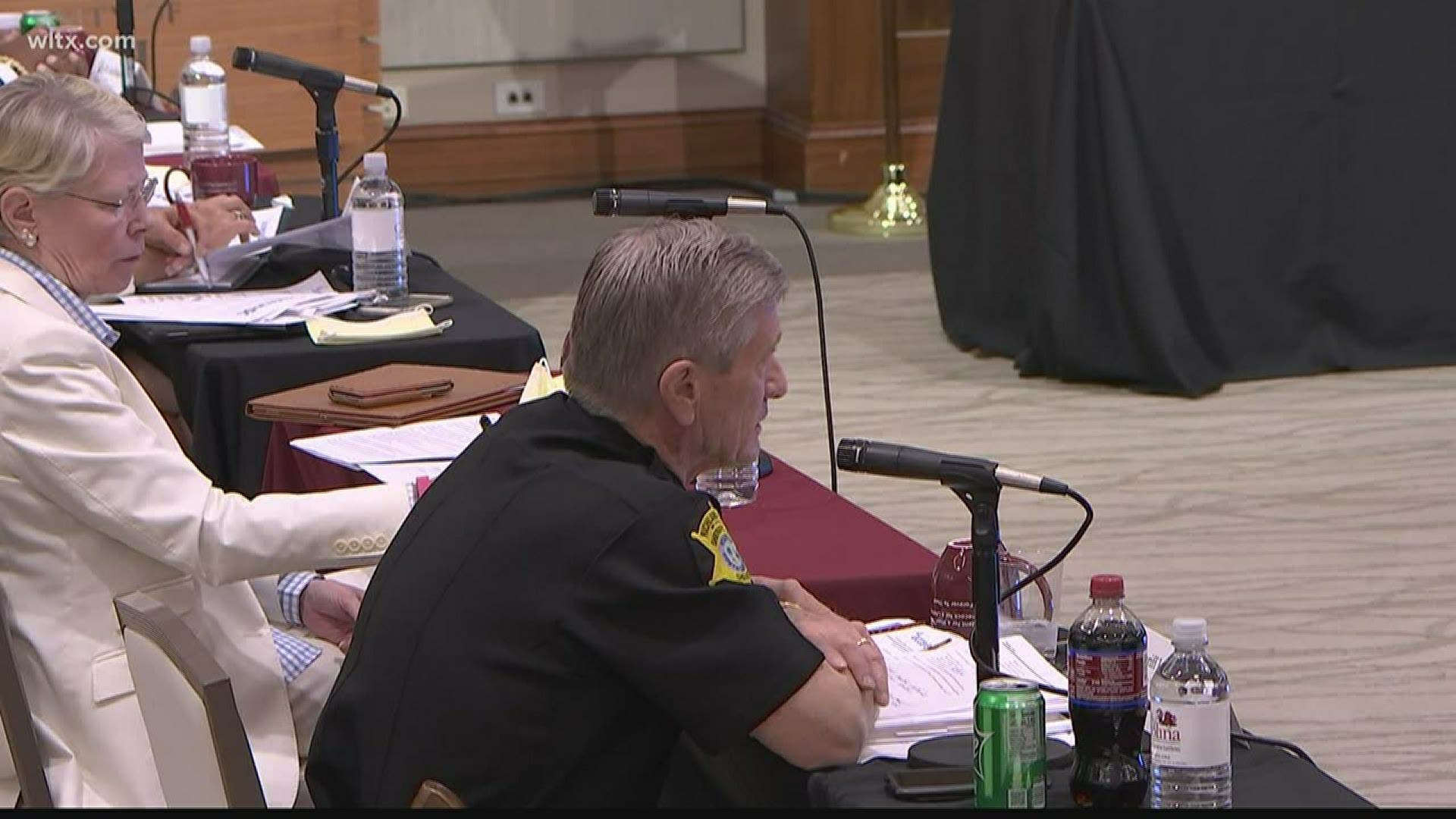COLUMBIA, S.C. — Governor Henry McMaster and Lt. Governor Pamela Evette welcomed the Governance committee of the AccelerateSC task force.
The Governance group is tasked with identifying challenges faced by state and local governments, educational institutions, emergency services and first responders during the coronavirus.
During Monday's meeting they asked questions about what issues those areas are facing, what legislative or regulatory changes need to be made and what is needed now and in the future to address the virus?
Local Municipalities
Local governments, like the rest of the state, are facing a major drop in revenue. They rely on tax dollars and business taxes and fees, but many governments are relaxing those guidelines to help small businesses stay afloat.
"We've run into problems with our business owners and operators," says Mayor Marolyn Hatley of N. Myrtle Beach. "There's no income coming in."
She says when it comes to business licenses, they are requiring the grocery stores and hardware stores that are still in business to pay.
"That keeps some flow of income coming into the municipalities," says Hatley. "Then you have the small companies and they just cannot pay their business licenses. So, what we have done is we have spread it out the cost of their business license for three to four months. For those who are closed, we tell them don't worry, you don't have to pay your business license until you open back up."
Local municipalities are also working on their fiscal budgets. According to state law, those have to be finalized by June 30th. However, lawmakers say they might be able to have a continuing resolution that allows them to finalize budgets at a later date.
Education Institutions
When it comes to education, students returning to schools and universities in the fall is still up for discussion.
"Dorm configuration, can we offer private rooms? ours are doubles, triples or quads," says Dr. Roslyn Clark Artis, president of Benedict College.
She says as much as she would like for her students to return, major social distancing changes have to be put in place.
"Many of my students, 65 percent are instate, but for those who come from states that are hot spots, what happens to those students?" asks Dr. Artis. "Healthcare facilities, as we think about the school nurse concept and the ability to address students unique medical needs on the campus, were there to be a diagnosis on the campus. There is no clear one size fits all."
"Our goal is to get the student back in school, get a job as quickly as humanly possible, pay taxes, so that the counties and the state have some revenue and let's restart our economy," says Dr. Mary Thornley of Trident Technical College.
Non-public schools were also represented during the meeting. Michael Acquilano of the Roman Catholic Diocese of Charleston says they are ex
"We did a survey of all of the schools in the state to see where they were," says Acquilano. "We don't have tax revenues to sustain us, but when we looked at the impact on our non public schools we saw a $31-100 million loss projected next year, based on us losing enrollment and them going to the public school. Those students that leave our schools because they can no longer sustain the tuition payment, and going to the public school, could cost tax payers and the state $31-100 million.
Law Enforcement
Richland County Sheriff Leon Lott spoke on behalf of local law enforcement around the state. He says law enforcement agencies are concerned about PPE, as well as mental health services.
They are also concerned about getting the virus.
"One of the worries they have is that if they do catch this virus, it's not covered by workman's comp," says Lott. "Maybe that is something that our legislative group can look at."
Another fear is a concern over losing positions as agencies lose revenue.
"When all of this is over with, who is going to be laid off? Are they going to have a job after they put their job on the line fighting crime and this virus, are they going to be laid off."
PPE kits are also low for detention centers.
"As inmates are tested positive, some of our smaller detention centers are just not equipped to isolate a group of inmates who have it," says Lott. "One of the answers could be a regional facility, that we could all work with and that inmates that test positive can go to one central location."
State lawmakers in attendance say they will look into some of the concerns that these agencies have, and hope to find solutions to help jump start the state's economy.
The full AccelerateSC task force is expected to meet again at the end of the week.

